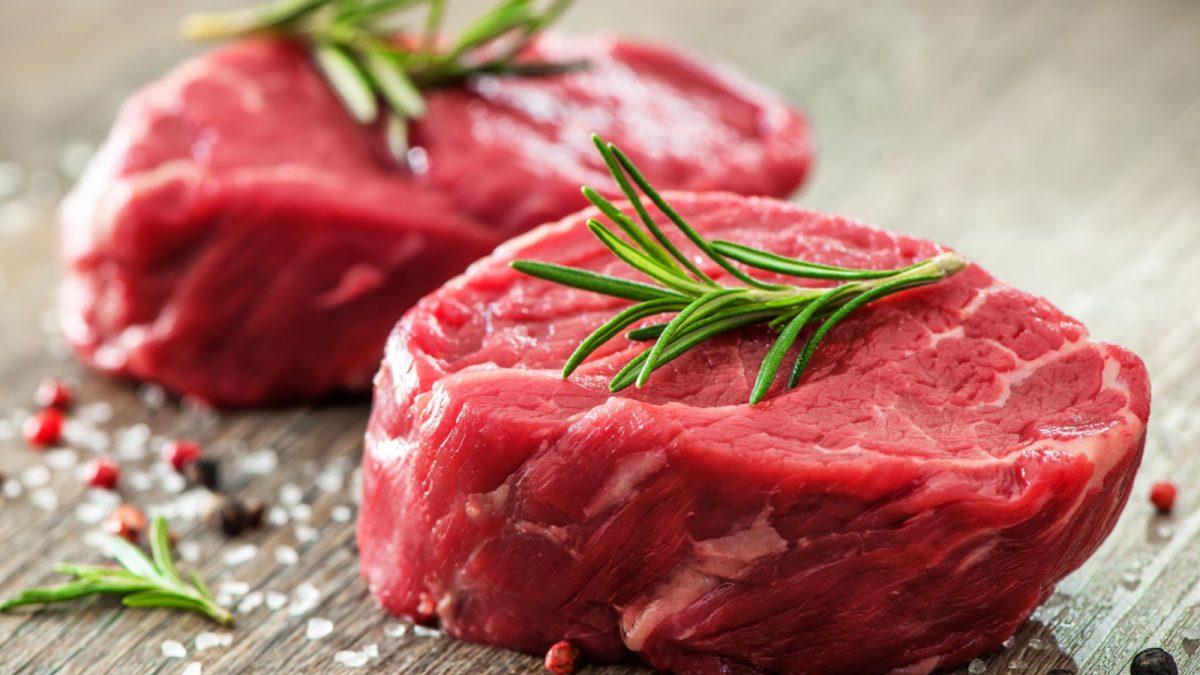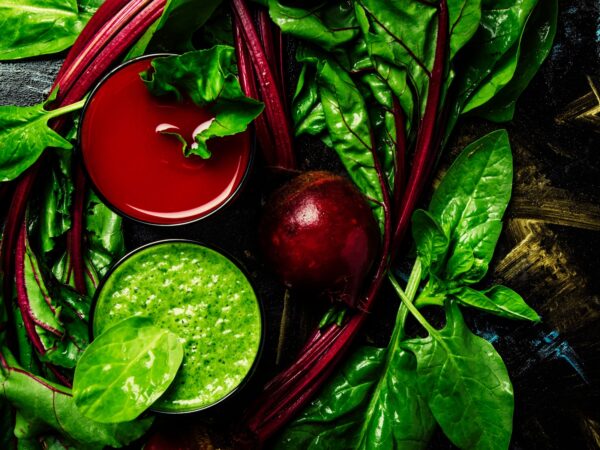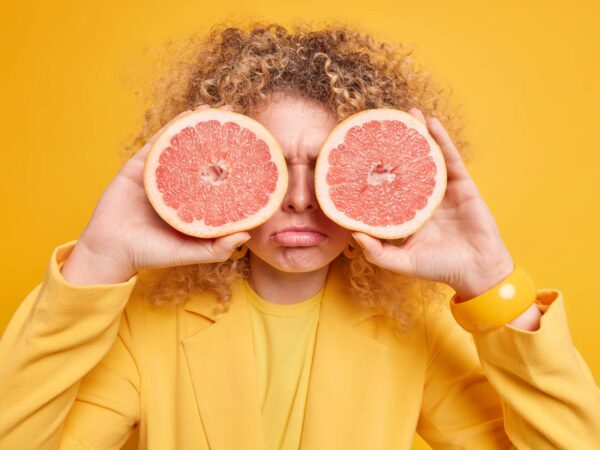Is This Deficiency Giving You The Blues?
Why can’t you just be happy?
Stop dwelling on things and get on with life. Be grateful for what you have. Exercise more. Watch some comedy.
These might be great ideas for beating the blues. But for some, it’s not that simple.
Imagine for a moment that your body wasn’t making enough red blood cells. Would you try to meditate those cells into existence? Probably not. It would be more practical (and effective) to include more iron in your diet. The same is true for the neurochemicals that help lift your mood.
Research shows that up to a third of patients do not respond to antidepressants. Studies also prove that in most cases, these drugs work only as effectively as a placebo. In other words, the entire benefit might be “in your head.” And this says nothing of the horrendous side effects and withdrawal symptoms many patients experience.
But there is good news for those who suffer serious depression. Researchers have demonstrated that many patients improve just by adding certain brain-boosting nutrients through diet and supplementation.
It is quite possible that for some people, depression is caused by critical deficiencies of certain nutrients. We don’t often think of the chemicals and neurotransmitters in our brain in terms of nutrient deficiencies. But the truth is that these critical messenger molecules are just like everything else in our body – they’re made from the building blocks in your food.
And to make the “happy chemicals” in your brain, you need a building block that many people are deficient in…
Vitamin B12 Benefits Your Brain
Low mood and lingering depression are well-documented clinical signs of vitamin B12 deficiency. This is also a nutrient that shows up frequently in mental health research.
A 2005 review of studies, published in the Journal of Psychopharmacology, states:
“Both low folate [B9] and low vitamin B12 status have been found in studies of depressive patients. An association between depression and low levels of these two vitamins is also found in studies of the general population.”
Mental health studies of subjects who follow a vegetarian diet also show a correlation for depression. These diets are typically low in vitamin B12.
In 2012 a group of researchers in Germany looked at the correlation between vegetarian diets and mental health issues. The research, published in the International Journal of Behavioral Nutrition and Activity, found those on vegetarian diets had a higher prevalence of mental health issues, including depressive disorders.
Another study conducted in Austria and published 2014 by the Public Library of Science found a similar correlation between low-meat diets and depression.
But vegetarians are not the only group at risk. Today we’re going to talk about how vitamins B9 and B12 benefit mental health and how to ensure you’re getting enough.
The Anti-Depressant Myth
Many people believe that anti-depressant medications help to increase (or make) serotonin. This is not true.
The class of medications known as Selective Serotonin Re-uptake Inhibitors (SSRIs) take the serotonin you already have and ‘hold it’ in the space between neurons. But we still need to produce serotonin so the SSRI has something to ‘hold.’
Like all neurotransmitters, serotonin is a type of protein molecule made from the protein that you eat. These proteins go through a critical process called methylation.
Life (And Happy Chemicals) Can’t Exist Without Methylation
Methylation is a biochemical process that happens inside every cell in your body. It occurs billions of times per second, and contributes to a wide range of functions including:
- Mood
- Detoxification
- Energy production
- Maintaining DNA
- Immunity
- Inflammation
For methylation to occur efficiently and successfully, we need enough vitamin B12 and B9. The absence of these vitamins can become the rate-limiting factor in producing neurotransmitters. A 2008 review published in Alternative Medical Review explains:
“Without the participation of 5-MTHF [from methylation pathway] in this process, SAMe and neurotransmitter levels decrease in the cerebrospinal fluid, contributing to the disease process of depression.”
Homocysteine is also part of the methylation cycle and high levels are associated with suppressive effects on “happy” neurotransmitters. High homocysteine levels are clearly correlated with depression and other mood disorders. Folate (B9) and vitamin B12 benefit patients by lowering homocysteine levels.
And while this hypothesis still requires clinical trials, it supports what we already know: vitamins B12 and B9 are critically important to mental health.
Do You Have A Vitamin B12 Deficiency?
As we’ve discussed, one of the symptoms of a B12 deficiency is low mood or depression. Other symptoms include:
- Constant fatigue
- Difficulty concentrating
- Muscle aches and weakness
- Poor memory
- Constipation, diarrhea, loss of appetite
- Nerve problems such as numbness or tingling
There is a simple blood test which can diagnose a deficiency of vitamin B12. Surprisingly, however, 50 percent of symptomatic patients show normal B12 levels. For this reason, elevated homocysteine levels are a more accurate measuring stick. If homocysteine is elevated, it’s likely that you are deficient in folate (B9) and vitamin B12.
Deficiency can occur simply by not including enough vitamin B12 in the diet (as in the case of vegetarians). But we can also become deficient due to poor digestive health and a limited ability to absorb nutrients. In these cases, healing the gut, adding enzymes and betaine HCL can help. Some rare cases of B12 deficiency require medical supplementation.
But it is within our diets that we find nature’s best source of vitamin B12.
Eat Yourself Happy!
Vitamin B12 is primarily found in pastured red meat such as beef, bison, lamb and wild game. The best sources of vitamin B9 (folate) are found in above ground vegetables, such as spinach, kale, asparagus, broccoli and avocado (technically a fruit).
If this sounds a lot like the “Paleo” or ancestral diet, you are correct.
Instead of trying to force happiness into existence, we should begin with the healthy diet and nutritional starting materials your brain needs to make those “happy chemicals” on a daily basis.
- Consume pasture-raised red meat and poultry for essential amino acids, vitamin B12 and another brain nutrient, vitamin B6.
- Fill your plate with plenty of organic green leafy vegetables for vitamin B9 (Folate)
- Include wild caught oily fish (like wild Pacific salmon, sardines and mackerel) for brain-nurturing essential fatty acids.
- And add fermented foods such as kefir, kombucha, sauerkraut and grass-fed corned beef to support your gut microbes (aka, your second brain) which also influences mental health.
By providing your body with the vital starting materials it needs to make your own “happy chemicals”, you can set yourself up for a sunny disposition that truly comes from within.
Reports from the USDA show B12 deficiency is widespread. At least 40% of the population may be severely deficient. Unfortunately, most B12 supplements suffer from one major flaw… they’re unabsorbable. Discover the ONLY way to get B12 directly into your cells without injections…





I tried to order the B12 supplements but the order said it did not go through.
I tried three different cards.
I still want the product but hope I’m not getting three orders
Thank you Cheryal
I so appreciate you Kelly! I can’t even begin to tell you how much! About 3yrs ago, my whole system started to really mess up. After several painful trial and error experiements, I found out that my system, as of right now, will not process any dairy, meat (really miss meat), refined sugars (don’t want them anyway), legumes, nightshades, berries and other fruit with seeds, gluten, and grains. I have to peel and cook all veggies, including the greens I put into smoothies, except cucumbers (but have to be careful not to get ones with big seeds). I also have to peel fruit like apples and pears. I have to be very careful not to eat cruciferous veggies more than 1-2x a week. The first time I baked and then bit into your grain free pita bread recipe, I cried!! It tasted so good to me, and it had been so long since I’d had any bread type food! I make them every other day now! Since I can’t have so many things, I’ll enjoy a little bread with my root veggie soup, or toasted with coconut oil, or with homemade unsweetened applesauce or…etc. :~) I haven’t tried very many of your other bread recipes because we live on my husbands small disability income and can only keep the very basic necessities on hand. But I’ve done a lot of experimenting with this wonderful recipe. I’ve added pureed onion & garlic with herbs, very tasty! I’ve added pumpkin before too, with and without pumpkin spices. Thank you so much for all your hard work!! And all you went through to create these recipes! Thank you & thank you! I wish you and your beautiful family a Merry Christmas and many blessings in the coming New Year!!!
Try Vegemite. A teaspoon on toast. Lots of B group vitamins etc. ;0)